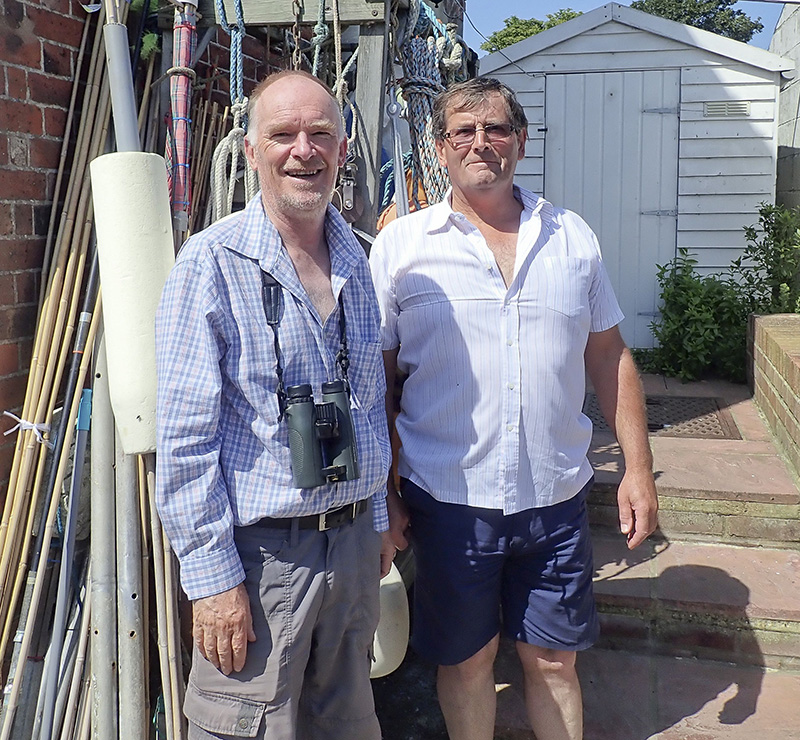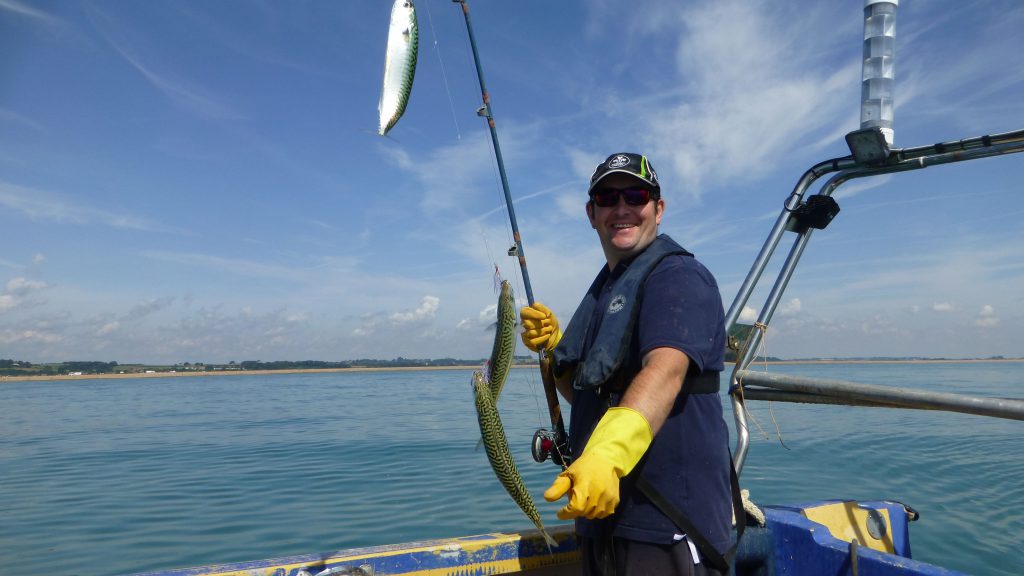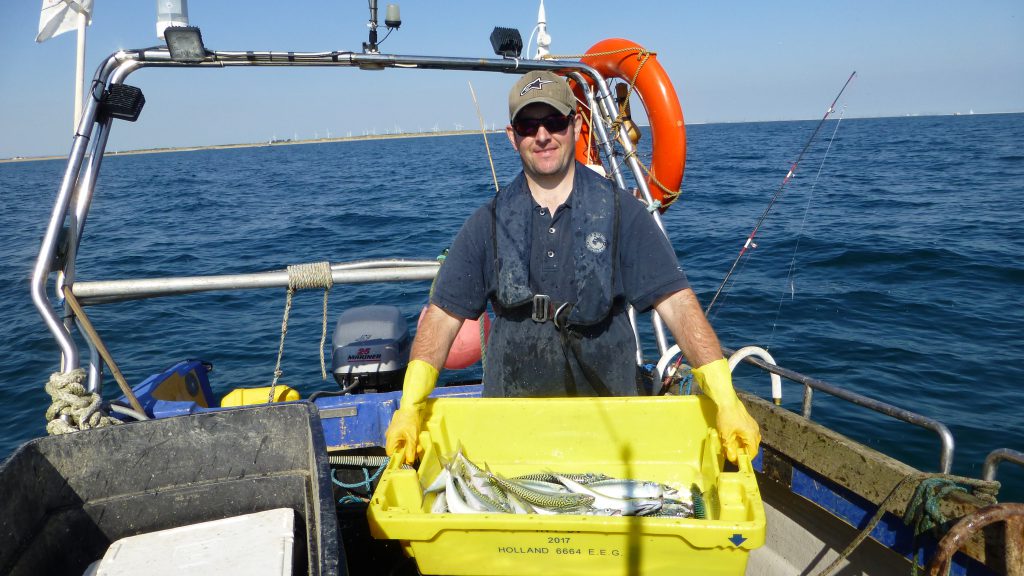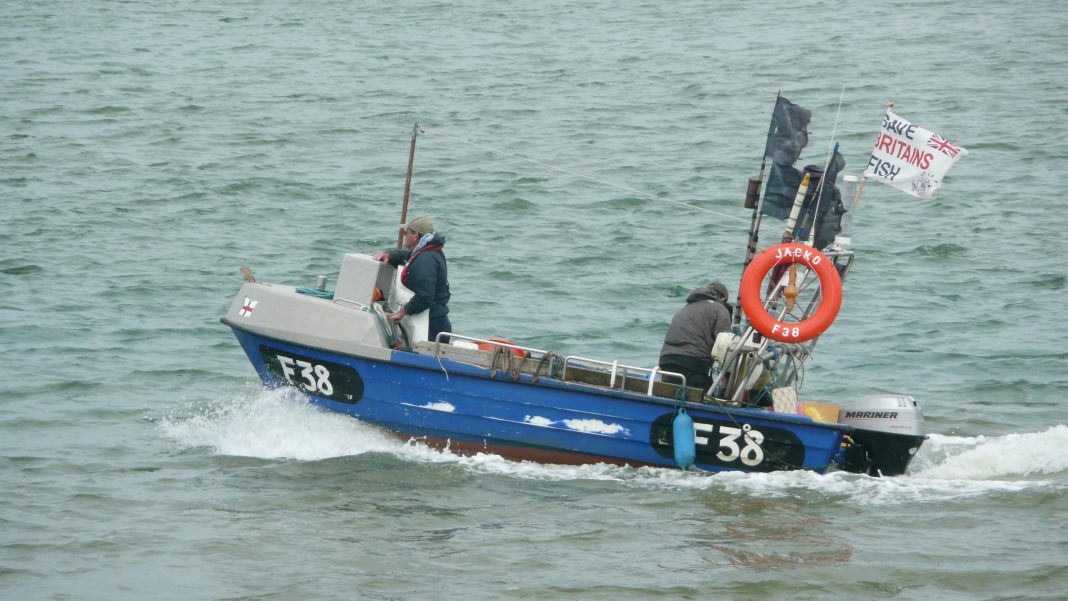“Fishing and conservation should work side by side – the terns and fishing community all need a healthy sea.” Dr Barry Yates, Manager, Rye Harbour Nature Reserve
Emma Chaplin of the Sussex Wildlife Trust speaks to John Botterell of Botterells Fresh Fish on Harbour Road, Rye Harbour

Tell us about yourself and your business
I wanted to be a marine biologist, but ended up joining the Dutch merchant navy, where I trained as a diver.
My father had a boat in Rye in the 1950s and I’ve lived here since the 70s. I used to build boats, and founded Botterells in 1976. The fishermen would come back with a catch that needed selling. I had contacts in London, so I’d take their catch and sell it in return for doing some work on the boat I was building for them. We had a barter system back then. It was when there was an oil crisis and things were tough.
I’m mostly retired. I mostly do scaley stuff, with fish such as bass. My two sons George and Jasper do most of the work now. George does the fishing and filleting. He takes the boat out of Rye Harbour along the East Sussex/Kent coastline. Jasper, a former boat builder, sells the catch and runs a Farmers’ Market stall, five or six every week. These are our main retail outlets. Locations include Wye, Penshurst, Bexley, Groombridge, Chislehurst and Crowborough.
It’s not a shop here, we’re a workshop that customers ‘find’, but having it open to the public means that people can see an interesting side of fishing.
What’s your best seller?
It changes through the year. The recent huge infestation of spider crab has been problematic and wrecked the fishing gear.
But usually, plaice and plaice fillets, mackerel, bass, crab, lobster if we can get it. Grey mullet and dogfish. The key thing about what we do is add value. We gut, scale, fillet, pick and cook (crab). We cold smoke.

What do you most like to eat, and how do you cook it?
I eat a lot of fish and love everything. Grilled dab. Pan-fried mackerel fillet. Smoked fish.
What qualities do you need to do your work?
Stamina and a good sense of humour. You have to get along with other people in the fishing community and customers.
How do you feel about the fishing industry?
There are those that see the fishing community as an adversary rather than as a companion. They don’t see us as the guardians that we are. Unfortunately, it can be true that fishing community is the least able to communicate things clearly. What we can do for society is underestimated therefore. We have a fierce interest in keeping the future of fishing sustainable. It is not in our interest to destroy our own living, as well as that of our children and grandchildren. What we want is for others to work with us. Communication is key.
Has the industry changed in your lifetime working in it?
The biggest change is that it used to be much easier to earn a living from fishing. It’s become much more difficult in the last 20 years. In general, people need to better understand how their food is produced.

Tell us about yourself and other local fishermen catching rubbish in their nets and disposing of it properly
In terms of collecting the rubbish we catch at sea and bringing it back to land, this was an initiative that came from the local fishing community. It makes the sea cleaner and we don’t want to catch it again the next day.
We used to find wooden crates and canvas bags. Now, humans create millions of tons of plastic without being aware of the impact of this on the future. People also expect others to clear up after them, and Rye Harbour is very windy, so we end up with a lot of plastic waste in the sea.
In terms of the plastic we as fishermen produce, at the end of the life of both trammel nets and sole nets, George will cut off the lead line and floats, then we bring them back to land to dispose of them safely.
What is most challenging about what you do?
People’s expectations. Customers want everything to be attainable.
What’s your favourite time of the day?
I’m retired, so it’s different now obviously. But I still like working in the quietness of night-time, the graveyard shift. It cocoons you.
What do you like about your work?
The people and the natural world around me. The wind, the sea, birds and wildlife.
Talking Fish
John has kindly agreed to give a talk about the local fishing community in the new Rye Harbour Discovery Centre, once it is open in spring 2020.
To find out more about how the project is progressing, see ryeharbourdiscoverycentre.org.uk
The Wildlife Trust’s National Marine Week is currently running until August 4, and is a time when we celebrate our seas. Events that Sussex Wildlife Trust is putting on for it can be found here.
Image Credits: Sussex Wildlife Trust .



